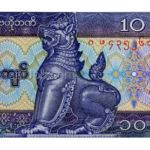The adventures of Patrick “Paddy” Leigh Fermor, Britain’s most beloved traveler, began in 1933, when he embarked on a walk from Holland to Constantinople—the entire length of Europe—at the tender age of eighteen. Sleeping in barns, monasteries, and, on occasion, aristocratic country houses, the young adventurer made way his through the Old World just as everything was about to change.
Words of Mercury collects pieces from every stage of Leigh Fermor’s life, from his journey through Eastern Europe just before the outbreak of the Second World War—described in gorgeous, meditative detail—to his encounter with voodoo in Haiti, to a monastic retreat to Normandy to try to write a book. Also included is the story of one of his most well-known exploits from the war—his planned and executed kidnap of a German general under British orders. Ever the student, “Paddy” also wrote extensively on his encounters with polymaths, linguists, and artists all over the world.
Over the course of his illustrious lifetime, Leigh Fermor wrote several acclaimed travel books, countless essays, translations, and book reviews, many of which are compiled in this anthology. His unique experiences out in the world fed his insatiable curiosity and voracious appetite for scholarship.
Foreword
By Rolf Potts
Patrick Leigh Fermor lived the kind of sprawling, uncommon life that draws easy comparisons to the classic adventurers of 20th century fact and fiction. In trying to convey the extraordinary deeds that defined him, writers and critics have likened him to Graham Greene, to Jack Kerouac, to Indiana Jones. The most common comparison is James Bond — no doubt because of Leigh Fermor’s elegant good looks, his real-life experiences as a spy, and the fact he was friendly with Bond’s creator, Ian Fleming (who hosted Leigh Fermor in Jamaica when he was finishing Casino Royale, and later drew on his guest’s travel writing for the voodoo descriptions in Live and Let Die).
To liken Patrick Leigh Fermor to James Bond is, of course, to give James Bond too much credit. Unlike Fleming’s fictional hero, Paddy (as Leigh Fermor was known to friends and fans) never relied on high-tech intelligence-dossiers or flashy spy gadgets. As both a youthful wanderer and a behind-the-lines war commando, he took things slow, mastered languages, and cultivated friendships, guided by his intellect, his charisma, and his exuberant curiosity. When recounting the most iconic moment of his life — kidnapping a German general in Crete during World War II — Paddy was less concerned with his own derring-do than in a moment of human connection with his captive (recounted in these pages) over the odes of Horace.
It is perhaps telling that the 1957 movie depiction of Paddy’s war exploits, Ill Met By Moonlight, was released in the United States under the pulpy, dumbed-down title Night Ambush. Indeed, to a certain American sensibility, Leigh Fermor’s accomplishments were notable mainly for their dashing, action-hero motifs. Even before he abducted a Wehrmacht commander in Crete, Paddy distinguished himself as a man of deeds, from his early decision to quit school and walk across Europe, to his multi-year love affair with a beautiful Byzantine princess in Romania, to his wartime R&R revelries in Cairo (where he swilled champagne with King Farouk, slept with exotic women, and — once, during a Christmas meal — dined on turkey stuffed with Benzedrine pills). In the years after the war, Paddy traveled extensively in both hemispheres, survived a communist assassination attempt, caroused with socialites, smoked 80 cigarettes a day, wrote a screenplay for John Huston, escaped a Cretan blood vendetta, and built a house overlooking the Messenian Gulf on Greece’s Mani peninsula. At age 69, on a Byron-inspired whim, he swam the Hellespont from Europe to Asia.
Leigh Fermor never portrayed himself as an action hero in his own books, however, and that could be a reason why his work is underappreciated in the United States. (I didn’t become familiar with his travel writing until I became a travel writer myself — and then only because other American travel writers recommended him to me with a dizzy fervor typically reserved for underexplored corners of the world.) The most emblematic image we get of Paddy from his own writing isn’t one of a grizzled and glamorous warrior, but of a cerebral young dreamer trudging through the snows of a pre-war European winter, ash-wood walking stick in hand, the Oxford Book of English Verse stashed in his rucksack, his heart open to poetry and place and possibility.
In A Time of Gifts, the first of what would become three volumes recounting his formative European sojourn, Paddy celebrates the simple challenges and rewards that await when one leaves home and sets off into the hopeful unknown. “I would travel on foot, sleep in hayricks in summer, shelter in barns when it was raining or snowing, and only consort with peasants and tramps,” he exudes at the outset of the journey. “If I lived on bread and cheese and apples…there would even be some cash left over for paper and pencils and an occasional mug of beer. A new life! Freedom!” Leigh Fermor thus captures the infectious ebullience of youth in A Time of Gifts and its sequels, but he also unveils the cultural and historical texture of his wanderings in lyrical, allusive, richly literary prose. Reading his travel writing, one isn’t sure whether to sequester oneself in the library with a stack of classics, or throw open the front door and start walking for the horizon.
In assembling the excerpts and essays that follow, biographer Artemis Cooper invites us into the pleasures of traveling on the page in Patrick Leigh Fermor’s company. Here, we get tales of a young Paddy sleeping in a Black Sea cave and drinking raki with Bulgarian shepherds; we see him playing bicycle polo on the Great Hungarian Plain; we see him drawing and selling portraits to make ends meet in Vienna; we see him, on the strength of his enthusiasm and charm, being “passed on from house to house like a bad penny” by his aristocratic hosts in Romania. We also get Paddy’s own account of his life as an Intelligence Corps commando, notable as much for its depiction of life in the Cretan mountains as for its military drama. Beyond this, we see an older Paddy hiking to an isolated village in the Indian Himalayas, observing voodoo ceremonies in Haiti, losing at billiards to Byron’s great-granddaughter in England, spotting dolphins off the coast of Greece, exploring silence in a Normandy abbey. And, physical travels aside, these pages offer a tantalizing window into Paddy’s voracious intellect, brimming with ideas and insights about people he met and books he read.
Carefully observed and remembered, these writings reveal a man who knew what he was passionate about, and had decided to live in such a way to enjoy those passions. To read his work is to be reminded that the best education is found through active engagement with the world, seeking and learning — that age doesn’t matter, that friendship counts, that one need not ever waste time being bored.





